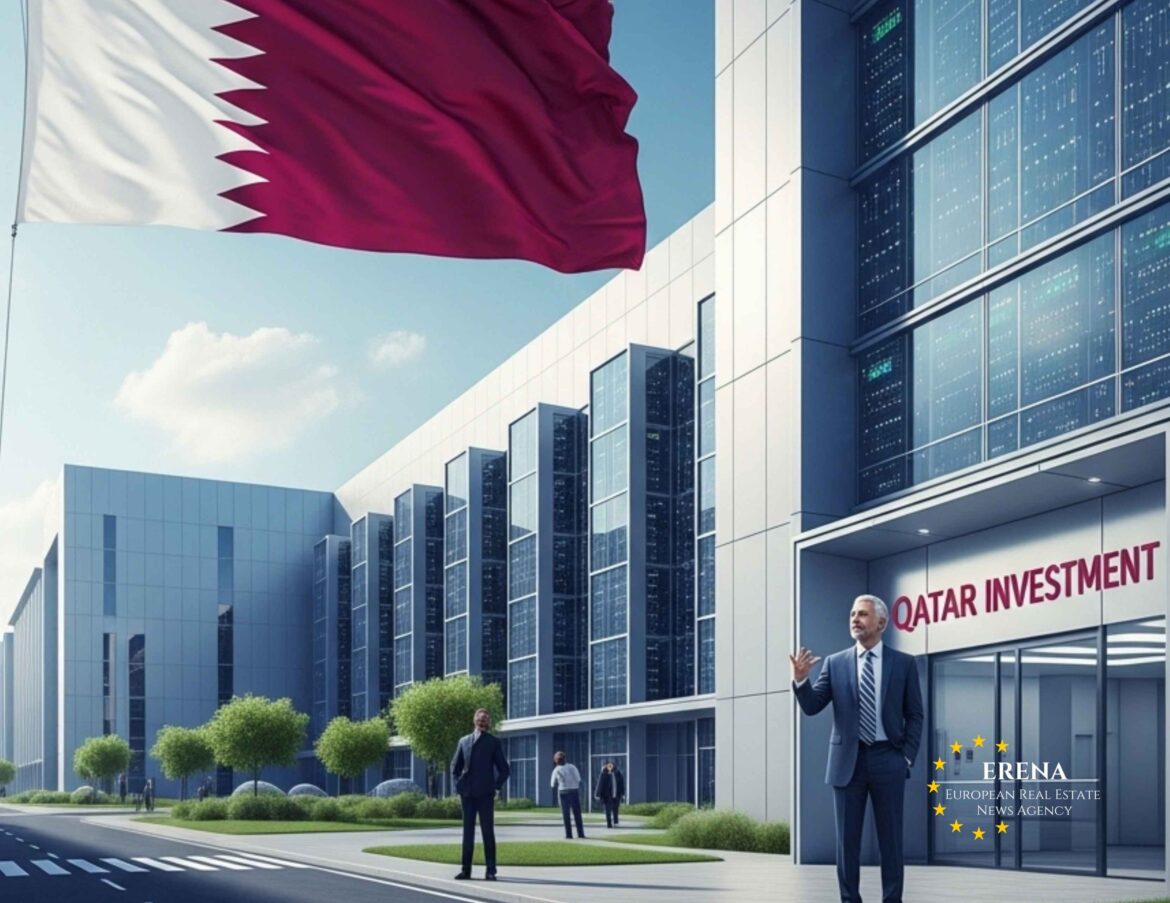In 2025, Qatar is executing a strategic shift by strengthening its presence in the high-tech sector, particularly through investments in data centers across Europe. Through its sovereign wealth fund, the Qatar Investment Authority (QIA), the nation is directing substantial capital into digital infrastructure, marking a move toward diversification away from traditional energy revenue. This pivot aligns with broader global trends as oil-rich nations reposition themselves for the digital age.
Why Data Centers?
Data centers are becoming critical assets in a data-driven world. The rapid rise of artificial intelligence, cloud computing, IoT, and streaming services is creating an unprecedented demand for secure, high-capacity storage and processing facilities. Europe—with its advanced regulatory environment, focus on data sovereignty, and tech-driven economies—offers an ideal landscape for such investments.
For Qatar, data centers represent stable, long-term investments with attractive yield profiles. As traditional fossil fuel markets experience volatility, high-tech infrastructure provides an appealing alternative for revenue generation and geopolitical influence.
Major Deals and Strategic Partnerships
QIA has already made significant inroads in 2025. One of the headline moves was a strategic partnership with Data4 Group, a major French data center operator owned by Brookfield. QIA acquired approximately 30% of the company for around €500 million, a landmark transaction in the European data infrastructure space.
Additionally, Qatar is pursuing opportunities in the Nordic countries, particularly in Norway and Finland, where abundant renewable energy makes data center operations both sustainable and cost-effective. Talks are underway for QIA to co-invest in new greenfield data center developments located near hydropower facilities.
Broader Strategic Objectives
Beyond financial returns, these investments are part of Qatar’s broader diplomatic and economic agenda. By investing in critical infrastructure across Europe, Qatar is reinforcing strategic alliances and strengthening its global presence.
QIA has long held significant real estate and infrastructure assets in London and other major cities. The data center push represents an extension of this presence into the digital domain—an essential evolution for any global investor in the modern era.
Financial Performance and Yields
According to industry analysts, European data centers in prime locations are yielding 6–9% annually, depending on tenancy profiles and power access. These assets attract top-tier tech firms such as Microsoft Azure, Google Cloud, and Amazon Web Services, making them low-risk and income-generating over the long term.
Estimates from JLL suggest that total investment in European data centers will exceed €20 billion in 2025. Middle Eastern sovereign funds, including those from Qatar, Saudi Arabia, and the UAE, are expected to contribute up to 20% of that amount.
Impact on Real Estate and Regional Development
The growth of data centers is reshaping urban and peri-urban real estate markets. Land near power grids, fiber-optic infrastructure, and energy sources is in high demand, especially in cities like Frankfurt, Amsterdam, and Paris.
QIA’s involvement is also accelerating development in emerging digital hubs like Aalborg (Denmark), Umeå (Sweden), and Tartu (Estonia), where land is more affordable, energy is green, and competition is less intense.
ESG Commitments and Green Technology
Qatar is placing emphasis on sustainability and environmental responsibility. QIA mandates ESG compliance in all infrastructure investments, particularly for data centers, which are energy-intensive by nature. Projects supported by QIA must meet standards such as BREEAM or LEED certifications and incorporate energy-efficient cooling and waste heat recycling systems.
This ESG-focused approach is not only beneficial for the environment but also helps Qatar position itself as a forward-thinking and responsible global investor.
Challenges and Risks
Despite strong fundamentals, there are challenges. Some European governments are beginning to regulate hyperscale data center development due to concerns over energy usage and land availability. For example, the Netherlands has implemented temporary restrictions on large-scale data centers.
There are also geopolitical risks. While Qatar is generally seen as a neutral investor, the strategic nature of data centers makes their foreign ownership a sensitive issue in some jurisdictions. Transparency, regulatory compliance, and cooperation with EU stakeholders will be key to maintaining investor confidence.
2026 and Beyond: What’s Next?
Looking ahead, Qatar is expected to further deepen its footprint in digital infrastructure. Total investments in data centers across Europe could exceed €1.5 billion by the end of 2025. In 2026, QIA may launch a dedicated digital infrastructure fund to attract co-investments from European pension funds and institutional partners.
The fund is also exploring the development of its own facilities through joint ventures, signaling a shift from passive equity participation to active development and operation.
Conclusion
Qatar’s 2025 pivot toward European data centers marks a significant evolution in the country’s investment strategy. As the world becomes increasingly digital, data infrastructure is emerging as the backbone of modern economies. By investing in this critical sector, Qatar is not only diversifying its portfolio but also securing a prominent role in the future of global digital connectivity.
For Europe, Qatari capital brings welcome momentum to the buildout of secure, sustainable, and high-capacity data infrastructure. As ESG compliance, digital sovereignty, and technological resilience become top priorities, Qatar is positioning itself as a key partner in shaping the digital future of the continent.

